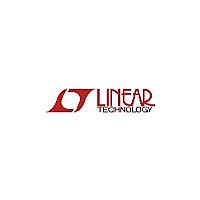LT1777IS#PBF Linear Technology, LT1777IS#PBF Datasheet - Page 10

LT1777IS#PBF
Manufacturer Part Number
LT1777IS#PBF
Description
IC REG SW BUCK LO NOISE 16-SOIC
Manufacturer
Linear Technology
Type
Step-Down (Buck)r
Datasheet
1.LT1777CSPBF.pdf
(24 pages)
Specifications of LT1777IS#PBF
Internal Switch(s)
Yes
Synchronous Rectifier
No
Number Of Outputs
1
Voltage - Output
1.24 ~ 30 V
Current - Output
700mA
Frequency - Switching
100kHz
Voltage - Input
12 ~ 48 V
Operating Temperature
-40°C ~ 125°C
Mounting Type
Surface Mount
Package / Case
16-SOIC (3.9mm Width)
Primary Input Voltage
48V
No. Of Outputs
1
Output Voltage
40.8V
Output Current
1A
No. Of Pins
16
Operating Temperature Range
-40°C To +125°C
Msl
MSL 1 - Unlimited
Rohs Compliant
Yes
Lead Free Status / RoHS Status
Lead free / RoHS Compliant
Power - Output
-
Available stocks
Company
Part Number
Manufacturer
Quantity
Price
APPLICATIONS
LT1777
Deciding upon a value for the sense inductor involves
evaluating the trade-off between overall efficiency (P
P
yield lower current slew rates which offer reduced high
frequency RFI emissions, but at the expense of poorer
efficiency.
The question is “What is the allowed range of values for a
sense inductor in a given application?” There is really no
minimum limit to the sense inductor, i.e., its value is
allowed to be zero. (In other words, the physical sense
inductor ceases to exist and is replaced by a short circuit.)
This will yield the highest efficiency possible in a given
situation. Although an explicit current slew rate no longer
exists, the naturally less aggressive nature of the LT1777
will often yield quieter supply operation than other stan-
dard switching regulators.
As far as the maximum allowable value for the sense
inductor, this is dictated by the current ramp rate in the
main inductor during the conventional part of the switch-
ing cycle. It is generally overconservative to limit the
switch current slew rate to that exhibited by the main
inductor. This would potentially yield a triangular current
waveform. Efficiency would be greatly reduced at little
further gain in noise performance. Stated mathematically,
maximum slew rate in the main inductor occurs at maxi-
mum input voltage as:
The sense inductor experiences 2V
This is perhaps 1.0V at a maximum hot condition. If we use
an additional factor of two to be conservative, this yields
a maximum sense inductor value as follows:
10
IN
Max L
L
) and switch current slew rate. Larger sense inductors
dt
dI
0 5
SENSE
.
V
Max V
SENSE
Max V
L
MAIN
IN
–
L
L
U
V
MAIN
MAIN
IN
OUT
–
V
INFORMATION
OUT
Max V
U
0 5
or
.
IN
,
V
–
W
BE
V
OUT
of applied voltage.
U
OUT
/
As an example, a maximum input voltage of 36V, an output
voltage of 5V and a main inductor value of 220 H yields a
maximum suggested sense inductor value of 3.5 H.
Circuit behavior versus sense inductor value is shown in
the oscilloscope photos in Figure 2. The circuit and oper-
ating conditions are similar to the Typical Application on
the first page of this data sheet with the exception that the
sense inductor is allowed to assume the series of values:
0 H, 0.47 H, 1 H and 2.2 H. Figure 2a shows a close-up
of the leading edge (turn-on) of the current waveform.
Values of 0 H and 0.47 H are found to yield a dI/dt of
about 2.2A/ s, while 1 H yields 1.4A/ s and 2.2 H yields
0.6A/ s. Figure 2b shows the trailing edge (turn-off) of the
Figure 2. V
L
SENSE
= 0 H, 0.47 H, 1.0 H and 2.2 H
SW
Node Current Behavior vs L
(a) Leading Edge
(b) Trailing Edge
200ns/DIV
200ns/DIV
SENSE
1777 F02a
1777 F02b
Value.















